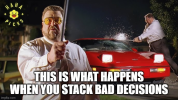I understand why so many fans are eager to trade Lauri; after all, that 2026 lottery pick is a shiny object that’s hard to look away from. But as my recent post on the Jazz’s lottery odds and the NBA’s tanking landscape showed, we’re nowhere near the point where panic-trading Lauri is necessary to protect that pick. The Jazz have one of the toughest remaining schedules in the league. Losses are coming. And let’s be honest: look at the teams we’ve beaten so far: a lineup of bottom-dwellers and rebuilders. The idea that we’ll maintain this winning trajectory once we face a steady stream of real competition is ... optimistic.
I also can’t shake the sense that a lot of this trade-Lauri enthusiasm stems from the seduction of the unknown. The promise of a future lottery pick is intoxicating, so much so that many fans seem more enamored with the possibility than with reality. What are the actual odds that whoever we draft ends up better than Lauri? Yes, a rookie is cheaper and fits a longer timeline. But matching Lauri’s current and projected production? That’s a tall order.
It reminds me of the modern dating-app phenomenon: people swiping endlessly, unable to appreciate the genuinely good match right in front of them because the algorithm keeps dangling the possibility that someone “even better” is just one more swipe away. It’s the tyranny of infinite choice: just one more swipe or one more roll of the lottery dice and...viola! And it leads people to overlook real value in favor of hypothetical perfection. The Jazz fandom feels a lot like that right now.
And then there’s the big-picture question I keep asking: How long do people actually want to keep losing? Keeping Lauri shortens our path back to relevance, especially if, as my analysis suggests, we are still highly likely to keep our pick. Trading Lauri, by contrast, practically guarantees an additional 2–3 years of lottery purgatory compared to keeping him. And remember: whoever acquires Lauri will be a contender looking to add a final piece, which means the draft picks we’d receive will almost certainly be mid-to-late firsts, the same kind we got from Minnesota and Cleveland. Useful, for decent role players, maybe, but long-shot territory for star-level upside.
So the real question is: Do fans genuinely want to wait another 4–5 years, or longer, before the Jazz are competitive again? Before we get to enjoy meaningful games, a real postseason push, and a team that’s fun because it’s good, not because we’re staring at lottery simulators?
Keeping Lauri gets us there faster. Trading him is swiping left and hoping and hoping and hoping....

